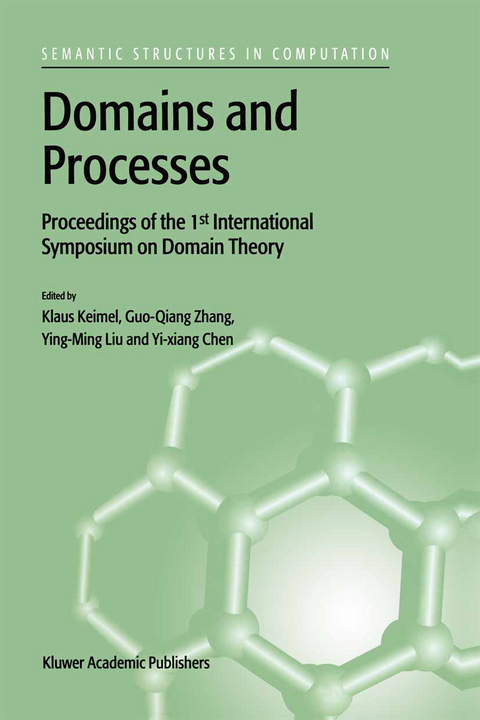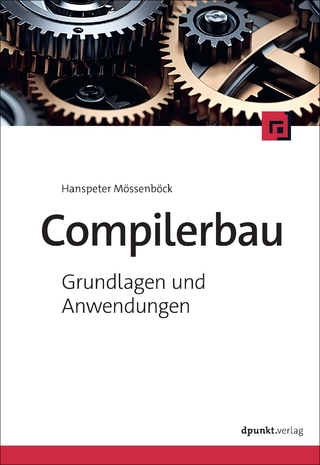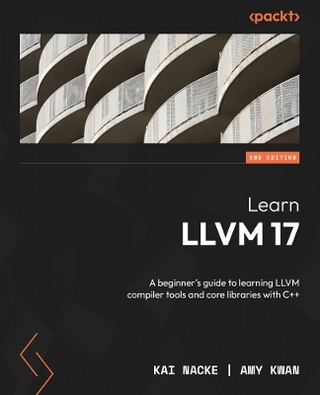
Domains and Processes
Springer (Verlag)
978-94-010-3859-1 (ISBN)
Domain theory is a rich interdisciplinary area at the intersection of logic, computer science, and mathematics. This volume contains selected papers presented at the International Symposium on Domain Theory which took place in Shanghai in October 1999. Topics of papers range from the encounters between topology and domain theory, sober spaces, Lawson topology, real number computability and continuous functionals to fuzzy modelling, logic programming, and pi-calculi.
This book is a valuable reference for researchers and students interested in this rapidly developing area of theoretical computer science.
1 Encounters Between Topology and Domain Theory.- 1 Introduction.- 2 Introductory Domain Theory.- 3 The Scott Topology.- 4 Locally Compact Spaces.- 5 Spectral Theory.- 6 Round Ideal Completions.- 7 Ordered Spaces.- 8 Compact Pospaces.- 9 Spaces of Maximal Points.- 10 The Domain of Closed Formal Balls.- 11 Fixed Point Theory.- 12 The Probabilistic Power Domain.- 13 Open Problems and Research Directions.- 14 Topological Appendix.- 2 The Lawson Topology on Quasicontinuous Domains.- 1 Introduction.- 2 Quasicontiuous domains.- 3 Strictly complete regularity of the Lawson topology.- 3 Uk-admitting dcpos need not be sober.- 1 Introduction.- 2 Uk-admitting for locally compact dcpo’s.- 3 Uk-admitting does not always imply sober.- 4 The Largest Topologically Cartesian Closed Categories of Domains as Topological Spaces.- 1 Introduction and Preliminaries.- 2 Relations between tcc and ccc categories.- 3 FS is the largest tcc full subcategory of CONT1.- 4 F-FS is the largest tcc full subcategory of CONT.- 5 On the Equivalence of Some Approaches to Computability on the Real Line.- 1 Introduction.- 2 The TTE approach to real number computations.- 3 The domain-theoretic approach to real number computability.- 4 The language Real PCF.- 5 The equivalence results.- 6 Concluding remarks.- 7 Appendix.- 6 The continuous functionals of finite types over the reals.- 1 Introduction.- 2 The types.- 3 The hereditarily total objects.- 4 Density and co-density.- 5 Limit spaces.- 6 The traditional approach.- 7 Compact Semantics on Bc-domains.- 1 Introduction.- 2 Preliminaries and Characterizations for Semantics Continuity.- 3 The Compactness Theorem And Applications.- 4 Conclusion.- 8 Normal Subsets in Abstract Bases.- 1 Introduction.- 2 Prerequisites.- 3 Normal subsets and sub-domains.- 4 The dcpoclass of abstract bases and a fixed point theorem.- 9 Semantics of Logic Programs and Representation of Smyth Powerdomain.- 1 Introduction.- 2 Domains and information systems.- 3 Main representation theorem.- 4 Proofs.- 5 Examples.- 6 Semantics of disjunctive logic programs.- 7 Clausal logic over sequent structures.- 8 Conclusion.- 10 Domains of view: a foundation for specification and analysis.- 1 Introduction.- 2 Kripke modal transition systems.- 3 Fuzzy Kripke modal transition systems.- 4 Modal Markov chains.- 5 Modal relations.- 6 Related work.- 11 Semantic Theory and Proof System of Open Bisimulation for the ?-Calculus with Mismatching.- 1 Introduction.- 2 Operational Semantics of the ?-Calculus.- 3 Open Bisimulation and Its Symbolic Characterization.- 4 Proof System for Open Bisimulation.- 5 The Weak Case.- 6 Conclusions.- 12 Axiomatization without Prefix Combinator.- 1 Introduction.- 2 Preliminaries.- 3 Polyadic X-Calculus.- 4 A Process Calculus without Precedence.- 5 Ground Bisimilarity for Atomic X-Calculus.- 6 Axiomatization in the Absence of Prefix, Summation and Match Combinators.- 7 Final Remarks.
| Reihe/Serie | Semantics Structures in Computation ; 1 |
|---|---|
| Zusatzinfo | XIV, 273 p. |
| Verlagsort | Dordrecht |
| Sprache | englisch |
| Maße | 160 x 240 mm |
| Themenwelt | Geisteswissenschaften ► Philosophie ► Allgemeines / Lexika |
| Geisteswissenschaften ► Philosophie ► Logik | |
| Mathematik / Informatik ► Informatik ► Programmiersprachen / -werkzeuge | |
| Informatik ► Theorie / Studium ► Compilerbau | |
| Mathematik / Informatik ► Mathematik ► Allgemeines / Lexika | |
| Mathematik / Informatik ► Mathematik ► Logik / Mengenlehre | |
| ISBN-10 | 94-010-3859-7 / 9401038597 |
| ISBN-13 | 978-94-010-3859-1 / 9789401038591 |
| Zustand | Neuware |
| Informationen gemäß Produktsicherheitsverordnung (GPSR) | |
| Haben Sie eine Frage zum Produkt? |
aus dem Bereich


